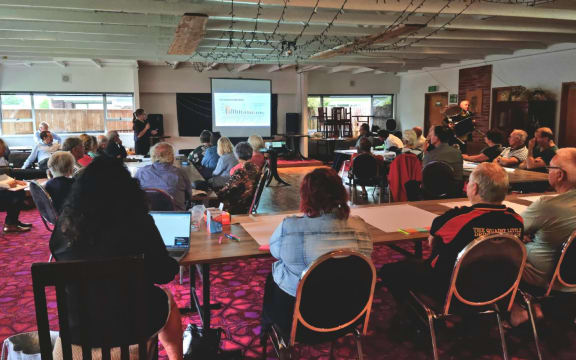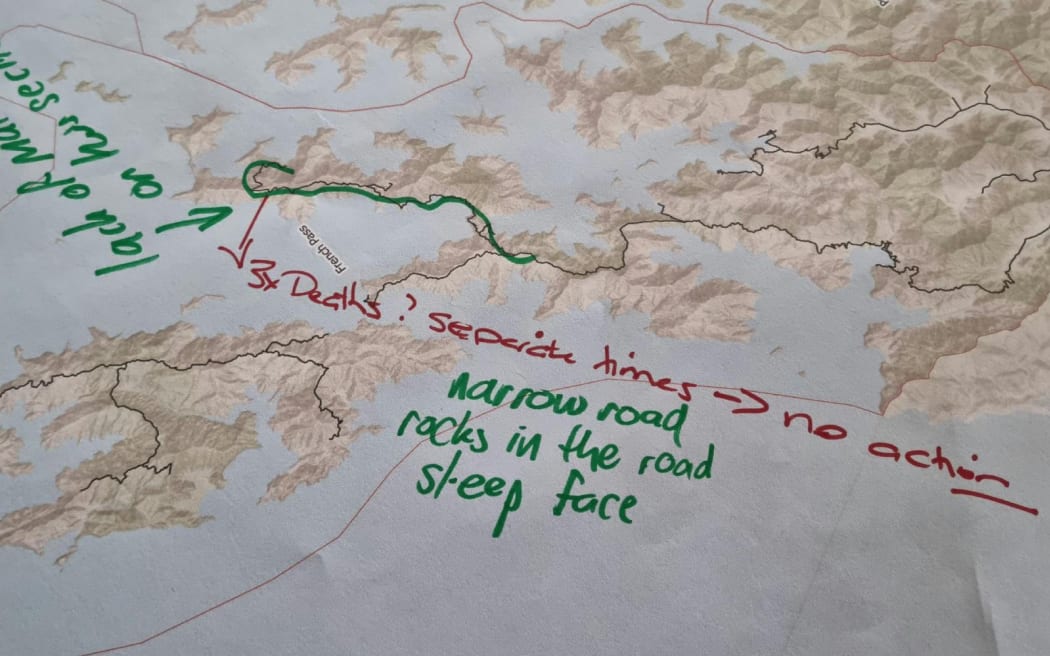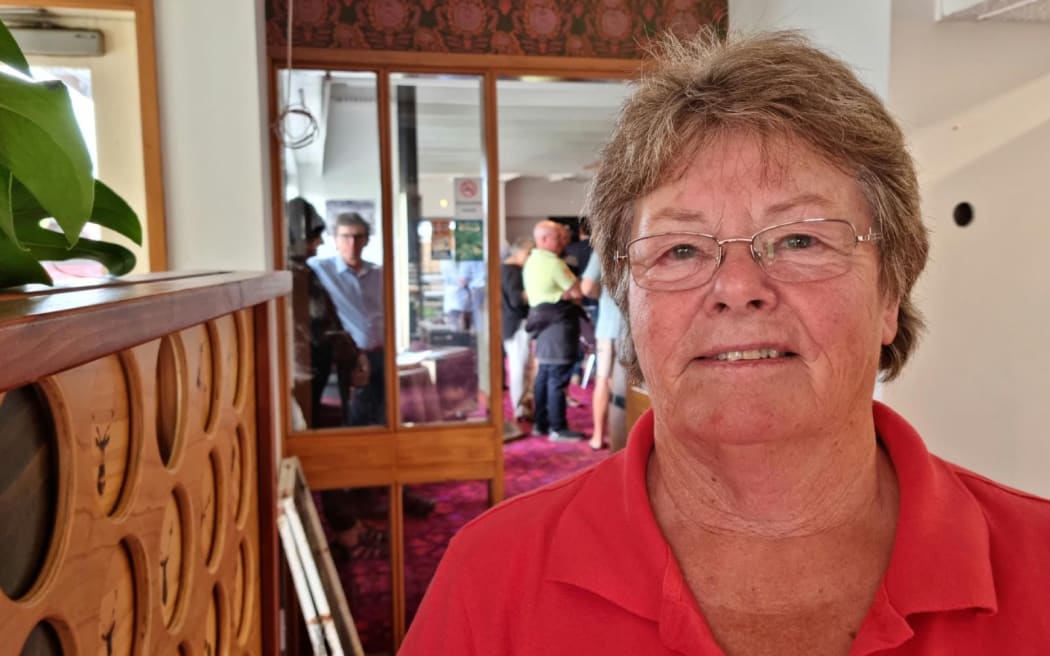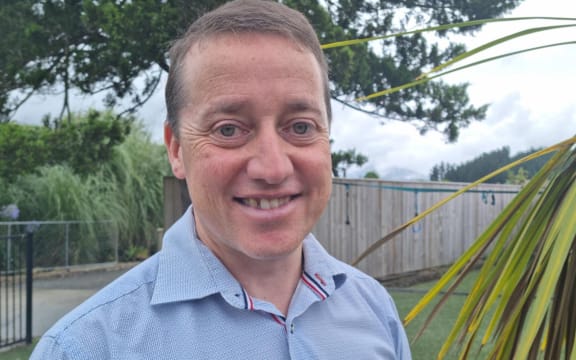Feedback on a map of the Marlborough Sounds at a community meeting in Rai Valley.
Photo: Samantha Gee / RNZ
Residents in the Marlborough Sounds are still dealing with wrecked roads after two massive storms caused widespread destruction.
The Marlborough District Council has launched the Future Access Study to get an understanding of access issues and concerns, and to get feedback on future transport options for the Marlborough Sounds before putting a business case forward to the government for funding.
Damage from the June 2021 floods is estimated at $85 million, with the majority of that cost covered by Waka Kotahi. The figure from the damage caused by last August’s disaster is still being tallied, but is expected to be even higher.
About 40 residents from French Pass, Okiwi Bay and surrounds gathered at the local pub in Rai Valley this week to give the council their feedback. The meeting was one of six held this week.

Around 40 people from Okiwi Bay, Rai Valley and surrounds attended a community meeting to give feedback on future access in and out of the Marlborough Sounds.
Photo: Samantha Gee / RNZ
Agricultural contractor Robbie Peat lives in Okiwi Bay and travels in and out of the small town most days for work. He said the roads out – Croiselles Road and Ronga Road – are likely to close again during the next heavy rainfall.
“The roads are very, very fragile. We’re sitting here at this meeting today, there’s light rain outside, it’s forecast to get heavier. You know, I don’t know if I’ll get home and that’s the feeling you get every day you leave the bay, or go to go home and it’s raining.”
He said heavy traffic servicing forestry, farming and aquaculture industries in the Sounds have increased, but the road maintenance had not.

Map showing feedback on issues with the Croiselles-French Pass Road.
Photo: Samantha Gee / RNZ
Tennyson Inlet homeowner Liz Barker said there was no easy solution – but the roads need fixing before further storms render them unsalvageable.
“One has to wonder if maintenance has a lot to do with it, culverts not being cleaned out on a regular basis, water tables being blocked.”

Tennyson Inlet homeowner Liz Barker.
Photo: Samantha Gee / RNZ
Rai Valley publican Jamie Knight said he often heard people talking about the road network.
“A lot of longtime Sounds residents have expressed to me that the road gets worse every year and they never see any action. The council thinks they can just chuck a grater on it and call it a day.”
A member of the volunteer fire brigade he said the damaged roads can make getting to Marlborough Sounds properties in an emergency very difficult.
“It doesn’t happen too often but when it does, especially when it when it dries out, it can be a dangerous task because we’ve manoeuvring a 14-15 tonne firetruck down a narrow gravel road with very little opportunities to pass, and in some points the road’s narrow due to a slip. That can be quite dangerous.”
Neil Henry is the project manager for the Future Access Study.
“The people in the Sounds have had disrupted access for quite some time now, their daily lives are affected.
“So we want to hear from them about what the impact has been on their lives and what the future might look like for them with different access options.”

Marlborough Sounds Future Access Study project manager Neil Henry.
Photo: Samantha Gee / RNZ
He said the council could not afford to fix the roads – so it needed to put a business case together for funding.
“We have heard loud and clear through these meetings there’s a feeling that the maintenance in the past hasn’t been as good as it could have been, and some people feel it may have contributed to the damage that was caused by the extreme events that took place.”
That means the council could be asking the government for help not only to repair the roads, but to also maintain them.
Feedback from these community meetings will be reviewed, with options presented back to Marlborough Sounds residents in May.





















Discussion about this post